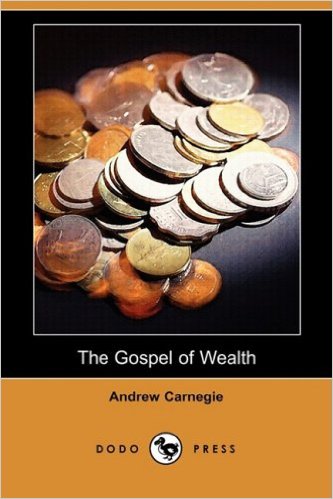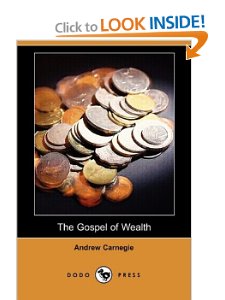Andrew Carnegie had an amazing impact on philanthropy and our understanding of wealth. His book is flawed in some ways, but well worth reading. Here’s a summer rerun for you. Originally posted a couple of years ago, it’s a good reminder.
Somebody once told me that Warren Buffet gave Bill Gates a copy of The Gospel of Wealth by Andrew Carnegie when Gates expressed interest in giving back to society. Not long afterward the Gates Foundation was created.
Is the book that powerful? Well, no. Nor do I think Gates was influenced solely by this book. But it is an interesting take on the responsibilities of those who have been given much. Many of the insights are actually Biblical in nature. Others are pure self-justification for unregulated capitalism. Somewhere in the midst of it you find yourself admiring Carnegie for taking the time to think about the topic.
Because let’s face it: a lot of us do not take the time to think about what are responsibilities are as wealthy citizens of the world. Oh sure, we give to a few causes, maybe even generously. But it’s often in a haphazard way without a lot of thought.
As Carnegie writes, “Those who would administer (wealth) wisely must, indeed, be wise, for one of the serious obstacles to the improvement of our race is indiscriminate charity.”
Carnegie put a lot of time and thought into his plans. I admire that. And even if you don’t agree with his conclusions, you have to agree that this little book offers cutting edge insight for its time. My guess is you’ll find yourself agreeing with more than you disagree with.



